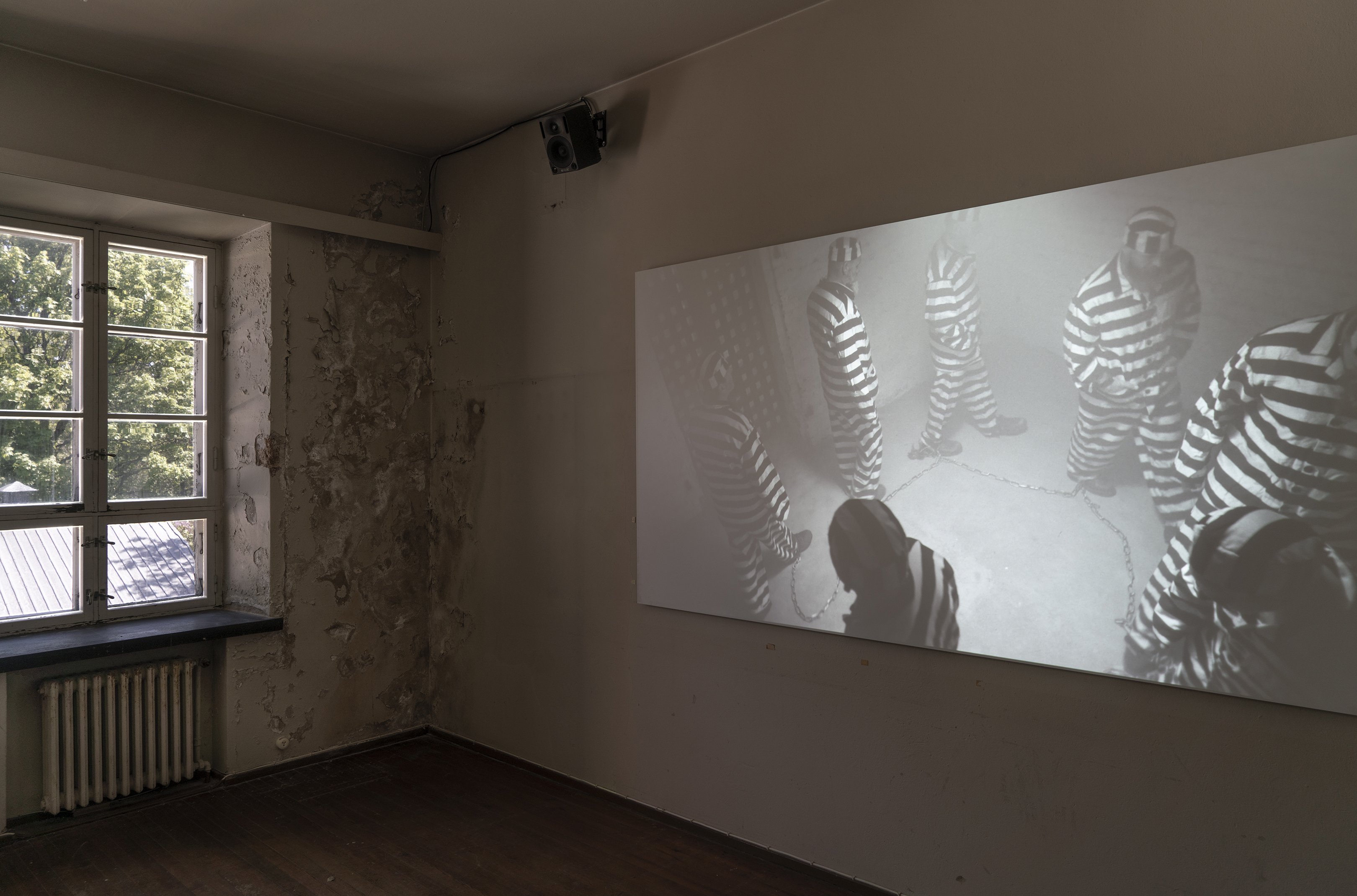What matters most in Paweł Althamer’s collaborative works is not what the end result looks like, but the process itself and playing together. His work for Helsinki Biennial was produced in collaboration with Suomenlinna Open Prison.
The communal approach is a resource for Paweł Althamer’s (b. 1967) artistic practice. This artist, trained in sculpture, involves his family members, neighbours and people he meets in the street. This collaboration produces sculptures – which the artist calls totems – that are the traces of the process that has taken place. His practice also involves moving in the public space and bringing the ways of making art to where people are. During his solo exhibition at HAM in 2019, for example, Althamer expanded his exhibition to Jakomäki, a suburb of Helsinki. What matters most in collaborative works is not what the end result looks like, but the process itself and playing together.
Searching for your own boundaries is part of Althamer’s art. The artist’s own body is the closest subject available to him, and through it he seeks contact with other people. By making art together with others he also provides the participants with the opportunity for a new kind of self-reflection. Althamer has produced collaborative works in a suburb of Warsaw where he has lived for many years. A suburban identity is an important part of what he is as an artist. In his participatory projects, Althamer does not recognize societal or social differences.

Paweł Althamer: Seven Prisoners, 2020 ©Maija Toivanen/HAM/Helsinki Biennial 2021
Seven prisoners, 2020
Paweł Althamer’s work for the Helsinki Biennial was produced in collaboration with Suomenlinna Prison and his artist friends Leszek Molski and Jacek Taszakovski. The entire film was shot in Finland, with Althamer playing the role of one of seven inmates that escape from prison. After crossing the sea and varied landscapes, the fugitives finally find their way back to nature and to themselves.
The work has two parts. The first is a VR film enabling the viewer to join the fugitives on their getaway and observe their relationship with surrounding reality and technology. The second part is a documentary about the making of the VR film.
Photo 1: Matti Pyykkö/Helsinki Biennial
Paweł Althamer
Seven Prisoners
2020
VR short film / Documentary film
Written & directed by: Paweł Althamer
Cinematography: Leszek Molski
Production Manager: Zuzanna Małycha
Participants: Paweł Althamer, Juha-Petri Kuronen, Lasse Kärkkäinen, Jere Louhivaara, Harri Mattila, Reetta Haarajoki, Marcin Althamer, Pessi Majander, Anonymous actors, Anonymous extras
Camera Operator: Mariusz Laszuk
Camera Assistant: Szymon Gonera
Gaffer / Lightning: Wojciech Ratajczak
Sound Engineer: Kajetan Zakrzewski
Second Unit: Jacek Taszakowski
Set and Prop designer: Marcin Althamer, Paweł Althamer
Stagehand: Elias Ukkonen, Erno Tainio
Costume Designer: Katarzyna Śródka, Agnieszka Bonas
Make-up artist: Tiina Karttunen
Filming equipment: VR Heros, Mariusz Laszuk, Kinos Rentals Oy
Light Equipment: Valofirma The Light House Oy, Light House Guru, Cezary Ziontek
Catering: Urban Donkey Catering
Editing: Leszek Molski
Stitching: Mariusz Laszuk
Colour correction: Leszek Molski
Sound mastering: Kajetan Zakrzewski
Synchronous effects: Maciej Krakówka M.P.S.E, Jan Chojnacki M.P.S.E
SOUNDPLACE Tomasz Dukszta
Music: POKUSA, Natan Kryszk – saxophone, Teodor Olter – percussion, Tymek Bryndal – bass
SPECIAL THANKS TO:
Pirkko Siitari & Taru Tappola, Head Curators of Helsinki Biennial 2021
Maiju Salo, Suomenlinna Prison
Viikki Research Farm – University of Helsinki, Soutuseura SMARK Ry, Raittiusyhdistys Koitto ry, Clarion Hotel Jätkäsaari, Sieriporo Safaris, YLE Finnish Broadcasting Company YTD / rekvisiitta
Managing Producer: Zuzanna Małycha, Leszek Molski
Co-producer: Filmujemy, Leszek Molski
HAM Executive Producer: Satu Metsola
HAM Production assistance: Annika Pråhl
Production Coordinator: Kirsi Tikka
neugerriemschneider, Berlin
Commissioned by HAM/Helsinki Biennial 2021 in collaboration with Suomenlinna Prison